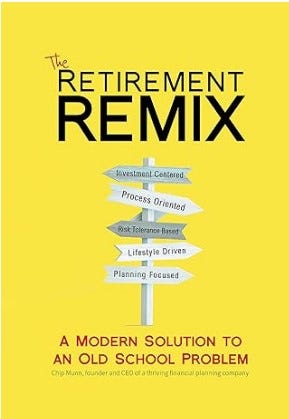He was dead almost 6 months to the day after he quit working.
It was not that Burt had no hobbies or outside interests. He had plenty: Gardening, home repair, cleaning out the garage, meeting with fellow military veterans.
Rather, I suppose it was that none of his new retirement ventures held any challenge. He moved from a daily frenzy of answering important questions for important customers to a schedule where nothing was a crisis.
He could sleep in, or not.
Read the newspaper, or not.
Work in the garden, or not.
Paint the spare bedroom, or not.
Check his IRA balance, or not.
For a man who had once been the centerpiece of a customer service group who depended on his wisdom and experience to solve problems, removing the stress was like un-stretching the rubber band.
Everything went suddenly flabby and loose.
I think it killed him.
Early retirement, early demise
The above, while true, is merely anecdotal. None of us at my work who knew Burt was the least bit surprised to hear of his death.
Chip Munn’s 2020 book, The Retirement Remix, points out that early death after retirement is not due to retirement itself, but to what one chooses to do in retirement.
Perhaps it is better to say, what one chooses NOT to do in retirement.
Munn points to studies showing early mortality after retirement is significantly linked to sedentary lifestyles (televisions and couches), and an increase in alcohol and tobacco use.
“At last! I am just going to sit here, binge a streaming network series, drink a fifth of Jack Daniels and enjoy my cigar! And then tomorrow, maybe do the same again!”
A friend of mine, 20 years my senior, did almost exactly that. A lifetime of vigorous physical labor came to a roaring stop when he hung up his tool belt. In less than a year he developed life-threatening medical problems.
Change, stress, and things that steal our sleep
There are stressors other than a sedentary lifestyle.
The Holmes-Rahe Life Stress Inventory identifies 43 life changes that produce stress. Adding “retirement” to “major business readjustment” to “major change in financial state” go a long way toward predicting a major health breakdown.
In today’s unpredictable economy, the nest egg set aside for the golden years is viewed with suspicion by many. Sure, the cash is there. But what of the expenses? And how long will it last?
The wealth of the rich is their fortified city; they imagine it a wall too high to scale. Proverbs 18:11
(they are, of course, wrong)
A major medical event can drain cash reserves to an alarming level. So can expensive home repair such as roof replacement or foundation repairs. And so can the requirement for full-time at-home medical care, assisted living or nursing home residence.
In America, Social Security is offered as early as age 62, albeit with a penalty. In 2022, nearly 23% of early retirees seized that golden income stream as soon as it was available. At the same time, studies show that most retired men will live another 20 years, to age 82.
That’s a long time, especially as the Social Security payout is reduced by over 25% for taking the early option.
What’s so wrong with working?
“Unretiring” is the term used for coming back to work after retirement. About 20% of retirees do just that. Some do so for financial reasons, others for mental stimulation or socialization.
My guess is that there will be much more of that in the next decade. Look at the macro trends in America:
We live longer
We remain healthy longer
We have families that are more distant
We are uncertain about the effects of inflation
Many families are separated by distance in way that was not as common 50 years ago. Having no family close generally means no regular contact with adult children or grandchildren.
Working, or volunteering regularly, provides a social context. It will never be as good as the grandkids, but it’s something.
All of which points to the fact that retirees are remaining active, or are seeking to do so. The question is: How do we contribute effectively while enjoying what we do?
Acknowledging limits, embracing life
With increasing age comes decreasing physical ability: less flexibility, less strength, less quickness, less stamina. Exercise helps, but ultimately it is a losing battle.
The digital age has opened a world of opportunity for those looking to remain relevant even as creeping age begins to take away vitality.
Some simple solutions are laughably easy. LinkedIn has 1 billion followers. X (Twitter) has 350 million. These figures are all over the board; hard to say how many there really are… but it’s a lot. A LOT.
If you want to find someone to talk to, you can find them. Just go looking. (To avoid the scams, find a coach to get tips.)
Do you like to meet with friends, but find yourself reluctant to drive after dark? Prefer not to get too far from home? Convene a virtual meeting via Zoom or Google Meet. I have a few people I meet with on a virtual connection every week, even though we live only a few minutes away.
The virtual thing saves a half hour of travel time, uses no gas, I don’t have to dress up and I don’t have to get the car out.
Ancient Wisdom
The promise to the aged person is repeated several times in the Old Testament. One of these is found in Psalm 1:
He is like a tree planted by streams of water, yielding its fruit in season, whose leaf does not wither, and who prospers in all he does.
Who does not want all that? The picture of the stream, the fruit, the healthy leaves, the prosperity… Sign me up!
What precedes the passage is a description of the lifestyle required:
Blessed is the man who does not walk in the counsel of the wicked, or set foot on the path of sinners, or sit in the seat of mockers.
But his delight is in the Law of the LORD, and on His law he meditates day and night.
You’ll have to invest some mental energy to understand what this passage tells you. There is no magic formula here; no simple checklist to follow.
This is not a prosperity gospel: Read your Bible and grow rich! It is, rather, a prescription for a lifestyle that is honorable and fulfilling. It is not a secret, and there will be no banner ads on the grocery store checkout racks proclaiming long-hidden ancient cures.
Letting Biblical wisdom guide our mental and spiritual exercise, and embracing today’s technology to remain connected, is a recipe for the relevance we all crave.
Despite all the problems in the world — and they are legion! — it is a great time to be alive!
For more like this, (and for a lot that is not like this at all) subscribe to The Alligator Blog. (Yes, it’s free.) We collect new subscribers all the time. Welcome to you!






















Share this post